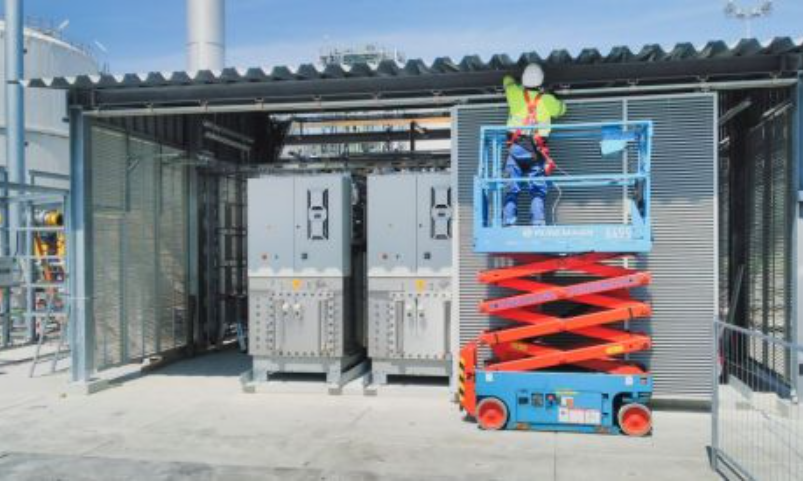The Netherlands – Sunfire is putting in the first multi-megawatt high-temperature electrolyzer in the world as part of the MultiPLHY project at Neste’s renewable products refinery in Rotterdam to create green hydrogen.
The business has already delivered the first two electrolysis modules, revolutionizing the market with new technological standards. Energy-intensive industries are implementing innovative cleantech solutions to meet their lofty sustainability goals. In light of this, one of the most promising ways to replace fossil fuels and cut CO2 emissions is electrolysis for the production of green hydrogen.
A 2.6 MW high-temperature electrolyzer from Sunfire will be installed at Neste’s renewable products refinery in Rotterdam, the Netherlands, as part of the EU-funded demonstration project MultiPLHY. The electrolyzer is a cutting-edge piece of equipment designed to create green hydrogen using water and renewable energy sources. Construction work is already well underway, and Sunfire has just shipped the first two modules to Rotterdam, which are the main parts of its electrolysis system.
Largest industrial setting electrolyzer
The business will set up twelve electrolysis modules altogether on the property, making it the largest high-temperature electrolyzer ever installed in an industrial setting. It runs at 850 °C and is based on Sunfire’s ground-breaking SOEC (solid oxide electrolysis cell) technology. The electrolyzer converts water steam to hydrogen with the highest conversion efficiencies by using industrial off-heat. The most effective electrolysis method available is Sunfire’s SOEC technology because the steam lowers the need for electricity.
The high-temperature electrolyzer will be produced on-site alongside other renewable products as part of Neste’s refinery processes. The electrolyzer will produce more than 60 kg of green hydrogen per hour once it is fully operational, which is anticipated to happen in early 2023.
The MultiPLHY consortium also includes ENGIE, the SMS-group company Paul Wurth, the French research institute CEA, and Neste and Sunfire.





